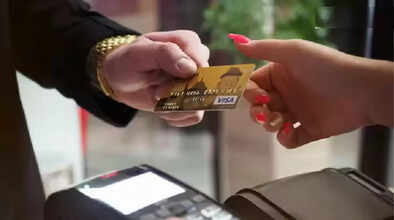Credit Card Discounts: Why are credit cards discounted, and how do banks earn from them?

Credit Card Discounts: Nowadays, people use plastic money, i.e., credit cards, for everything from shopping to loans. Let's explore how banks earn from them.
Credit Card Discounts: Nowadays, people use plastic money, i.e., credit cards, for everything from shopping to loans. Plastic money is gradually replacing cash, and it's used most by young people. The most important thing is that if you don't have money right now, you don't need to worry, because you can buy anything with it and pay later.
Not only this, these credit card companies offer you numerous cashback offers and substantial discounts if you use their cards regularly. But have you ever wondered what benefits these companies derive from these discounts and how banks earn from them? Let's find out.
How Banks Earn from Credit Cards
1. Merchant Fees
Whenever you use a credit card to make a payment, banks charge a merchant fee. A merchant fee is a fee charged by banks to merchants. This fee covers the bank's infrastructure, security, and transaction processing costs. Typically, this fee ranges from 2% to 3%.
2. Interest on Credit Cards
When you purchase something on credit using your credit card, the bank gives you 45 days to repay the amount. During these 45 days, the bank charges no interest. However, if the amount is not repaid after the due date, the bank begins charging interest. This interest rate ranges from 30% to 38% per annum. Furthermore, if you opt for EMIs, banks charge a substantial interest rate and earn revenue.
3. Marketing Tie-Up Charges
Now, when it comes to discounts, banks also charge marketing tie-up fees from various companies. This means that if you purchase something from a company and they offer you a discount for using a particular bank's credit card as a payment method, brands try to reach more customers through these discounts. When you receive a discount on a purchase using a credit card, people are more likely to use a credit card for the next purchase.

